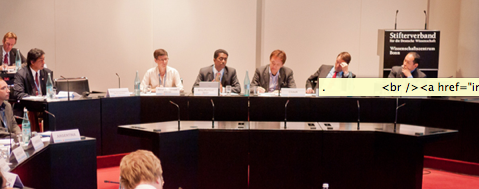Participants at the UNFCCC Workshop on Technology Needs Assessments (TNAs) shared lessons learned and good practices in conducting TNAs, and discussed the role of TNAs in facilitating delivery of technological and financial support for mitigation and adaptation actions, preparing and implementing national mitigation and adaptation actions, and the Technology Mechanism.
 2 June 2011: The UNFCCC Workshop on Technology Needs Assessments (TNAs) convened in Bonn, Germany, from 1-2 June 2011. The workshop sought to: share good practices and lessons learned from non-Annex I parties’ experiences in conducting TNAs; identify specific needs and practical actions to assist parties in implementing their results; and discuss the roles of TNAs in the context of the implementation of the Technology Mechanism as established at COP 16 in Decision 1/CP.16 (the Cancun Agreements).
2 June 2011: The UNFCCC Workshop on Technology Needs Assessments (TNAs) convened in Bonn, Germany, from 1-2 June 2011. The workshop sought to: share good practices and lessons learned from non-Annex I parties’ experiences in conducting TNAs; identify specific needs and practical actions to assist parties in implementing their results; and discuss the roles of TNAs in the context of the implementation of the Technology Mechanism as established at COP 16 in Decision 1/CP.16 (the Cancun Agreements).
Nearly 70 participants from governments, international organizations and civil society engaged in the two-day workshop, which operated under Chatham House Rules of non-attribution. Participants met in sessions addressing: national and international perspectives on lessons learned and good practices in conducting TNAs; implementing the results of TNAs, focusing on international and private sector perspectives; experiences and lessons learned from supporting technology transfer activities; strategies and recommendations for the future of the TNA process; the role of TNAs in enhanced action on technology development and transfer; the role of TNAs in facilitating delivery of technological and financial support for mitigation and adaptation actions, preparing and implementing national mitigation and adaptation actions, and the Technology Mechanism.
Important workshop themes included, inter alia: awareness of specific national conditions is a key asset when undertaking technology transfer exercises; the ability to implement technology transfer-related results of TNAs is highly dependant upon having adequate policy and regulatory mechanisms in place to attract investments; learning from similar countries can be an efficient strategy for identifying appropriate technologies; key stakeholder involvement not only improves outcomes but may attract potential donors; and the TNA process is key for developing nationally appropriate mitigation actions (NAMAs) and national adaptation programmes of action (NAPAs). [IISD Reporting Services Coverage] [Workshop Website with PowerPoint Presentations]